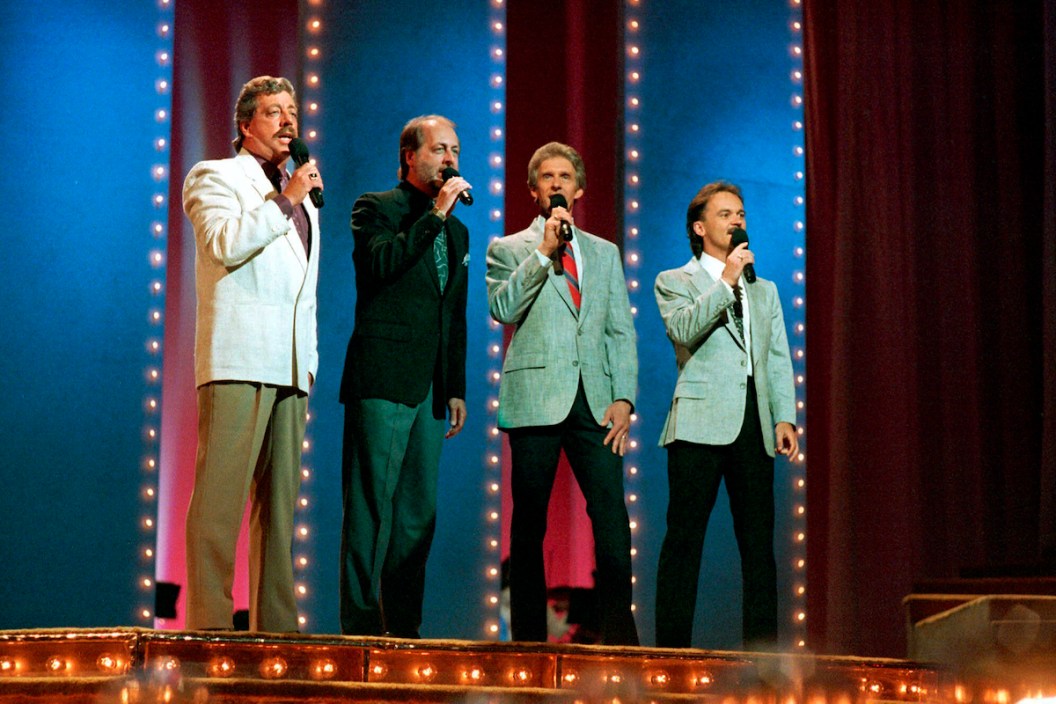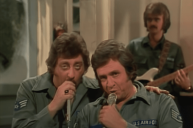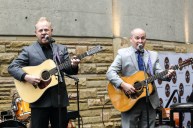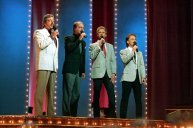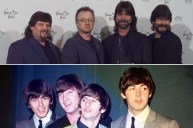In the '60s and '70s, Grammy award winners and The Johnny Cash Show regulars The Statler Brothers—four singers, two brothers and no one named Statler—proved there was a place in mainstream country music for hitmakers modeled after country gospel quartets' four-part harmonies.
Despite initial resistance from some in the music industry, established gospel act The Oak Ridge Boys became breakthrough country stars upon the 1977 release of the four-piece vocal group's most secular album to that point, Y'all Come Back Saloon.
"I think [The Statler Brothers] opened the door for The Oak Ridge Boys," Oaks lead singer Duane Allen told Wide Open Country in April. "When we were trying to cross over from gospel, we went to just about every record label in the city of Nashville. Each of them had the same answer: 'We already have a four-part harmony group.' That kind of shocked us because we were coming from gospel music, which was full of four-part harmony groups. The country executives would say, 'We've already got a four-part harmony group in country music.' Like there can't be but one.
"But we found Jim Fogelsong, God bless him, and he said, 'I think there's room for another.' He was the head of ABC/Dot at the time, which later became MCA," Allen continued. "He put his stamp of approval on us. He found Ron Chancey to produce us, and Ron Chancey produced all of our biggest hits. He's known as the fifth Oak Ridge Boys. We were off and running for 10, 12, 13 years, everything we did went to the top of the charts."
The Statler Brothers' classic lineup of siblings Harold and Don Reid plus Phil Balsley and Lew Dewitt (later replaced by Jimmy Fortune) didn't exactly become old news when The Oak Ridge Boys went country, proving that there really was room for two quartets. Indeed, all four of the Statlers' No. 1 hits came after the Oaks' ascent, with both groups coexisting on the charts and as peers and friends.
"Back in our earlier days when we first came on the scene, a lot of people thought that us and The Statler Brothers were some kind of rivals," the Oaks' tenor vocalist Joe Bonsall explained. "It wasn't true. Except for the fact that there's four of them and four of us, we had totally different ways that we did things. If we were just like the Statlers, there never would have been a reason for The Oak Ridge Boys. We never had a competition thing with the Statlers. It's always been nothing but good friendship and brotherhood."
All of these years later, both Country Music Hall of Fame quartets remain connected through Fortune's ongoing solo career.
"Us and Jimmy Fortune are brothers, man," Bonsall said. "When he first went out solo... He didn't want to stop singing. Those guys did, but he didn't. The first tour dates he did was opening for The Oak Ridge Boys."
With those bonds of friendship came good-natured teasing aimed at The Statler Brothers' bass singer and jokester, the late Harold Reid.
"One of the biggest differences between the Statlers and The Oak Ridge Boys has to do with Harold Reid," said Oak Ridge Boys bass singer Richard Sterban. "He stood on the wrong side of the stage. He doesn't stand in the bass singer's spot. He stands in the tenor spot."
Read More: The Judds and Ray Charles Headline the Country Music Hall of Fame's Class of 2021
Sterban's observation lines up (pun intended) if you watch footage of pretty much any gospel quartet, from The Cathedrals to Gold City.
"We've always had a thing with them about that they stand wrong," added Bonsall. "They're just wrong! For years and years and years, they had a lot of success standing wrong."
The Oak Ridge Boys' dear friend Harold Reid died on April 20, 2020 following a long battle with kidney failure. He was 80 years old.
